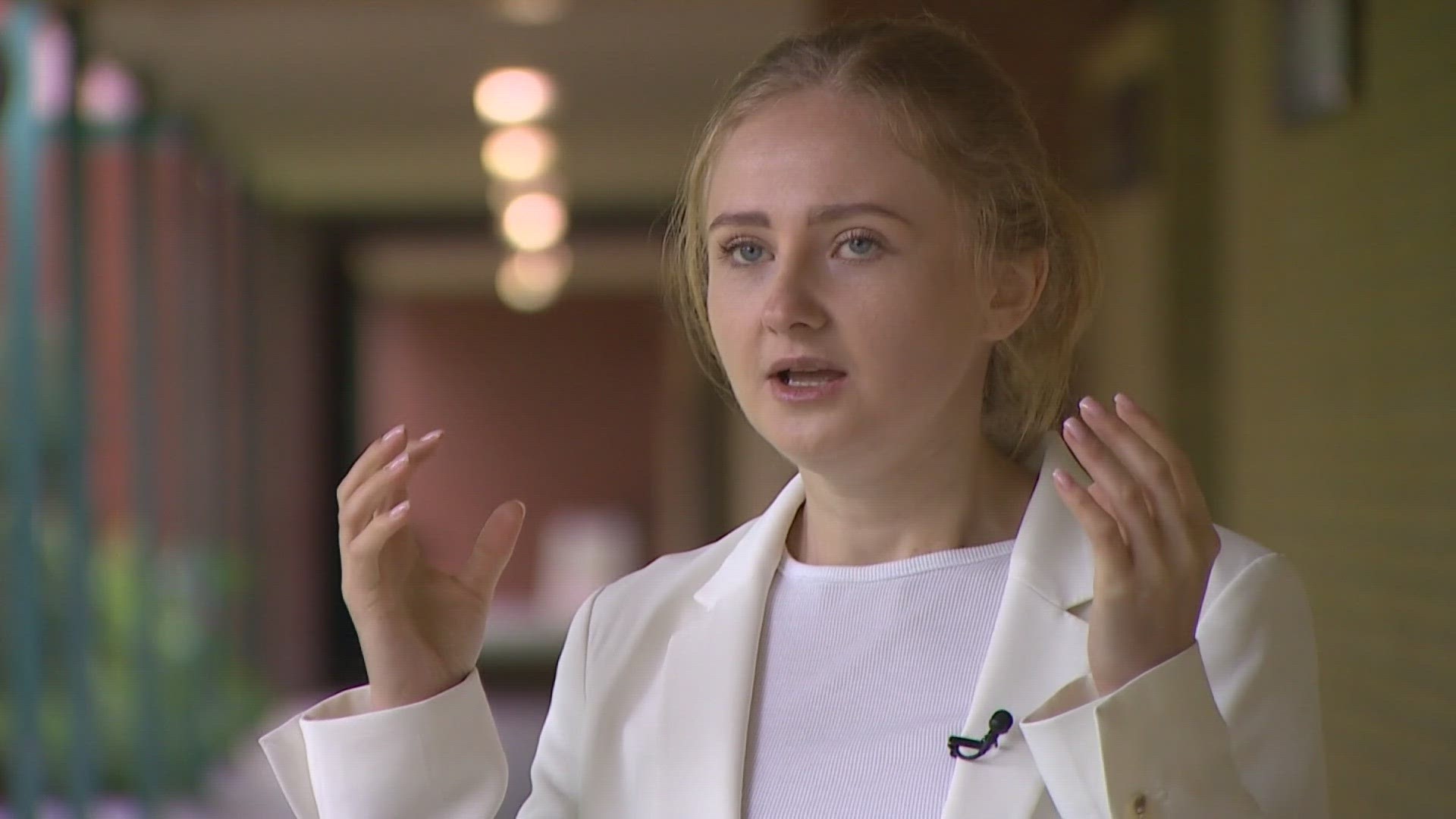EVERETT, Wash — Tuesday was officially "World Refugee Day" in Snohomish County.
People from Fiji to Brazil came to Everett Community College to celebrate their food, song, dance and culture.
Through the more than two-hour event, the voices of refugees and immigrants were lifted. Among them were about a dozen refugees from war torn Ukraine.
Yulia Malachynska, 26, came to Washington 14 months ago as the Russians were bombing apartment buildings in her home town.
"It's very scary," she said. "All the time you hear the alarms because of bombs."
Yulia's grandparents remain in Ukraine. She believes they are safe, but can't be sure for how long.
"You just feel this worry all the time," she said.
There are currently well over 16,000 Ukrainian refugees in Washington. Since October, 3,783 have arrived in Snohomish County. An estimated 300 more men, women and children are coming every month.
Sixteen months into Russia's invasion of Ukraine, resources in western Washington are wearing thin.
"Right now we rely on the community," said Van Kuno, executive director of Refugee and Immigrant Services Northwest (RISNW). "At some point, the welcome mat gets tired. I think at that point the people coming in will not get the support they need."
RISNW is the state's only refugee welcoming center, helping transition to life in a completely foreign culture.
Kuno believes the influx of immigrants is beginning to strain health care systems, housing markets and schools.
"Most of the people we see arriving have some sort of health issue," Kuno said. "Then they need a place to live. The openings, the vacancies are getting smaller and smaller. We try to put them in hotels and transitional housing, but that resource is dwindling down, right now."
Kuno said more help is needed from the state and federal governments to support refugee services. If not, "my fear is they will probably sleep under trees," warned Kuno.
An additional 3,000 refugees are expected in Snohomish County by the end of the year.
Advocates are pleading with people, church groups and community organizations to donate a spare room, rental property or mother-in-law apartment to help house the growing number of refugees. Housewares and diapers are also desperately needed.
Yulia said the American people have been kind and generous.
"They ask where I am from and when they hear Ukraine they say they will pray for me," she noted.
Still, the transition to life here has been hard. That's why she is now working with Refugee and Immigrant Services Northwest to help new arrivals from Ukraine find homes, jobs and learn the language.
"I understand what they are going through," she said. "I want to help."
Both Yulia and Kuno hope to keep western Washington a safe haven for Ukrainians until they can once again return home.
"It's our country. It's our land. We know for what we are surviving," said Yulia.

